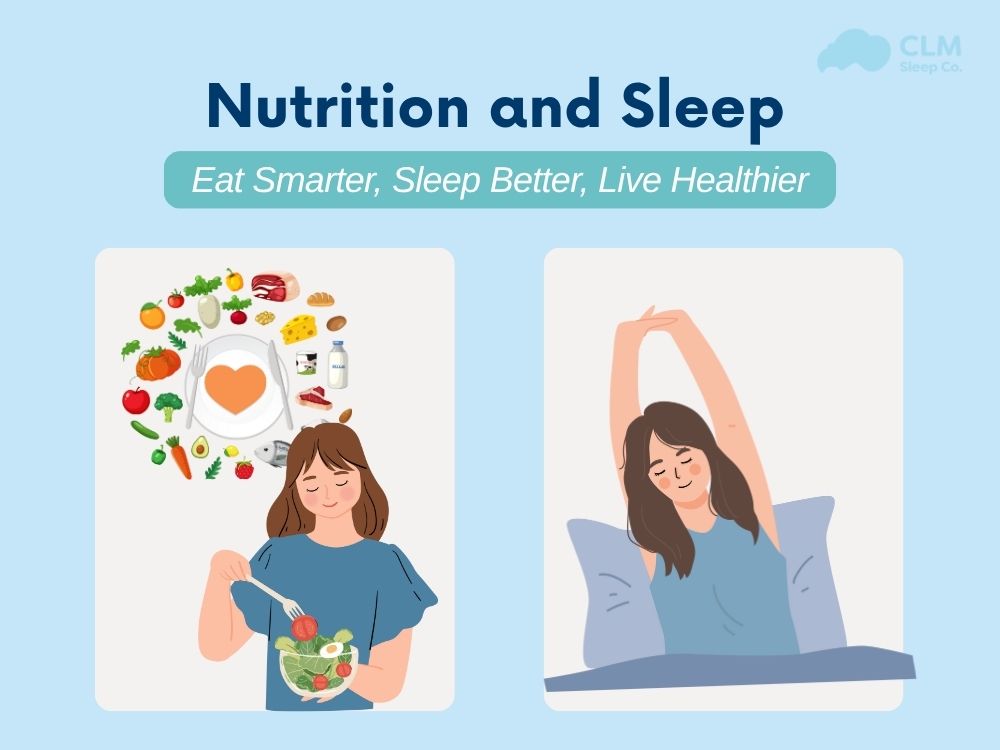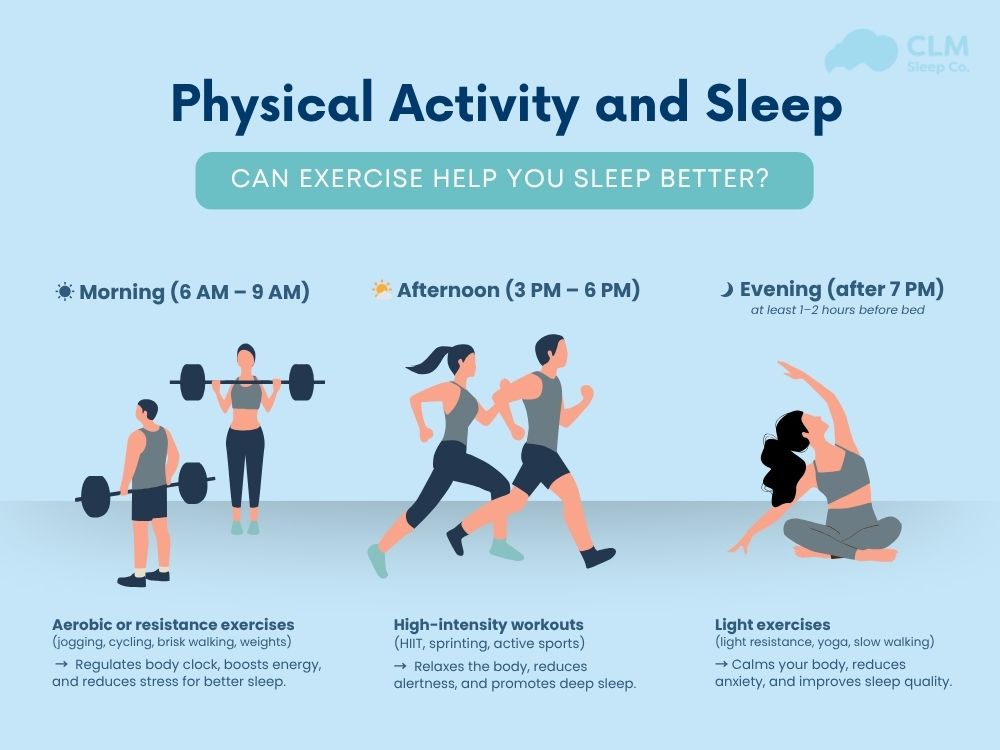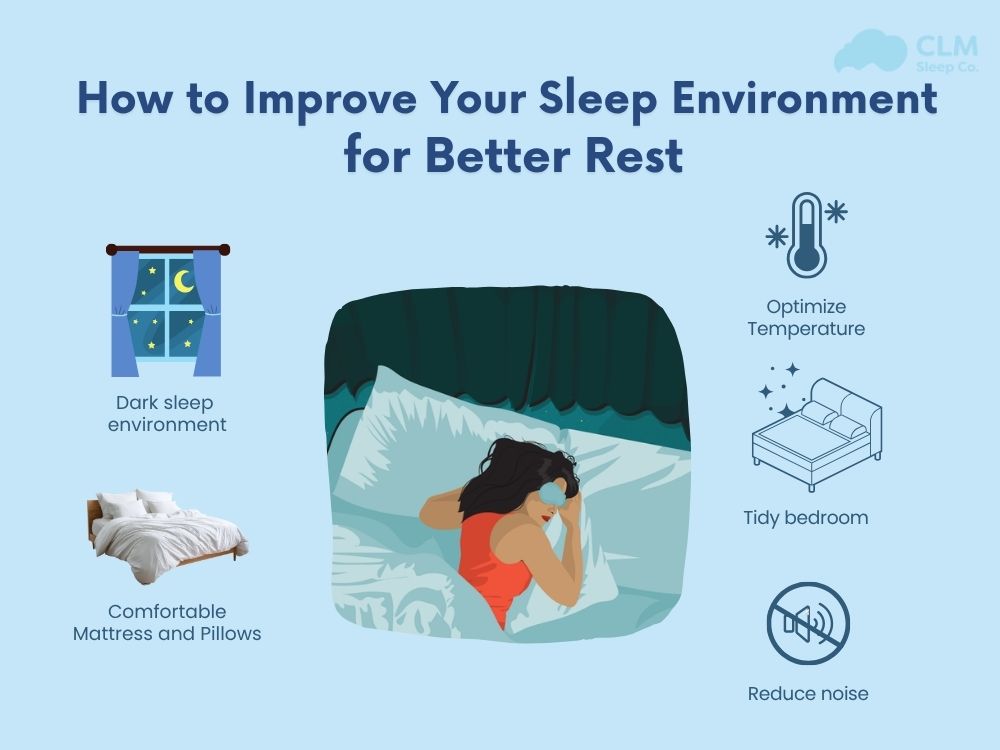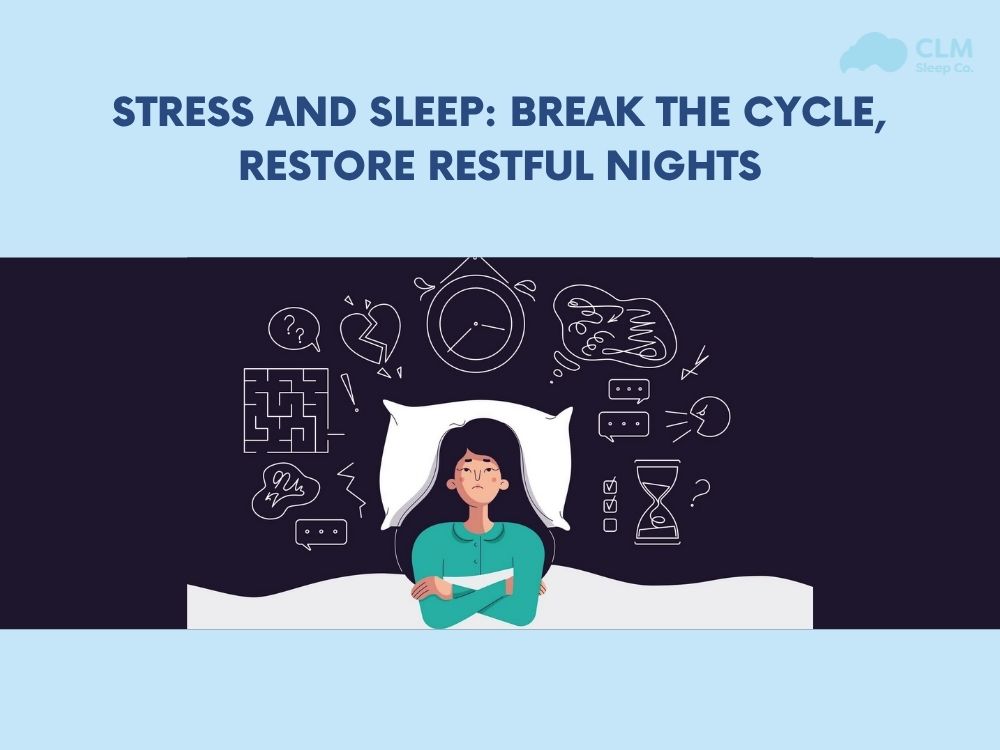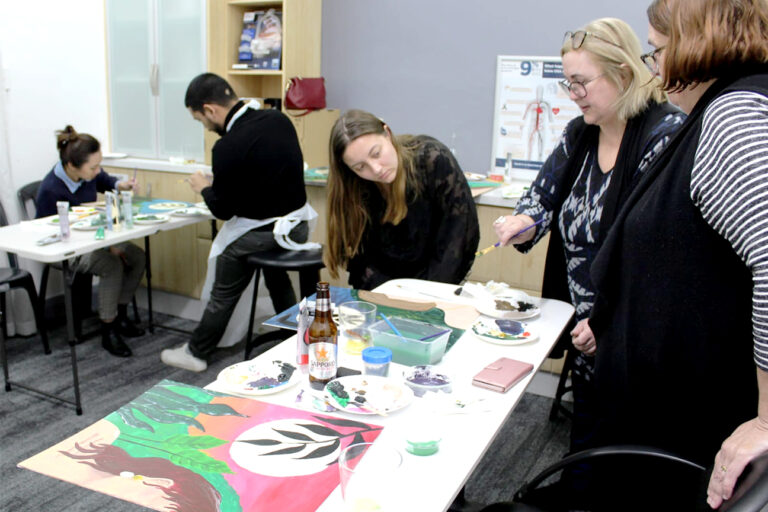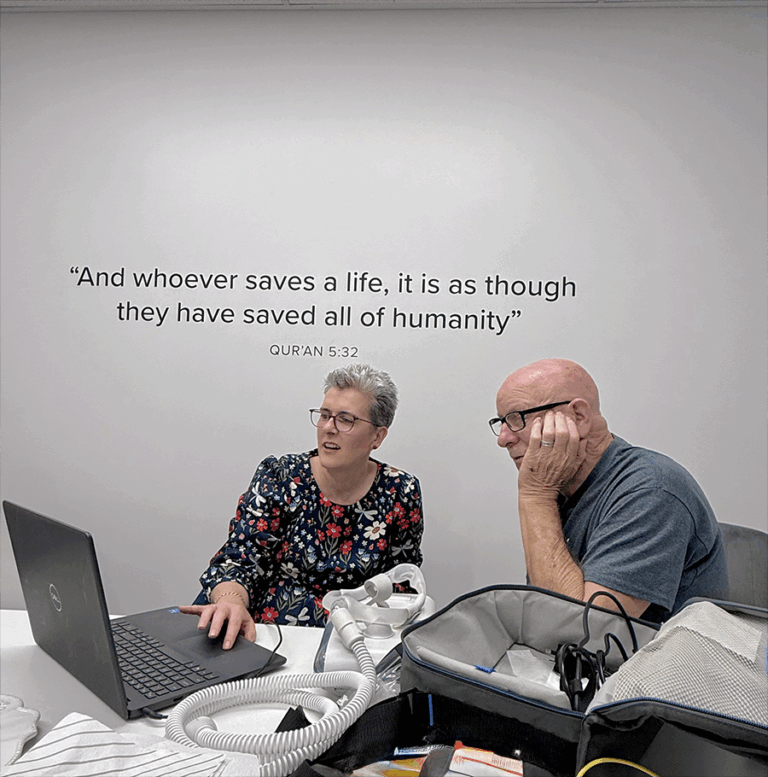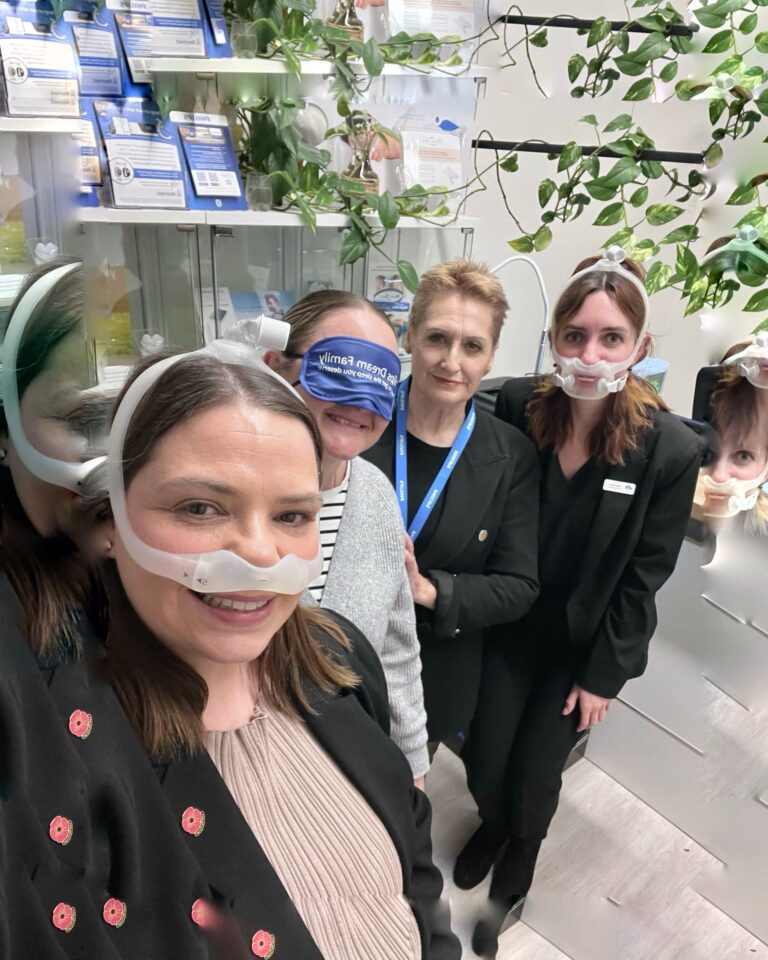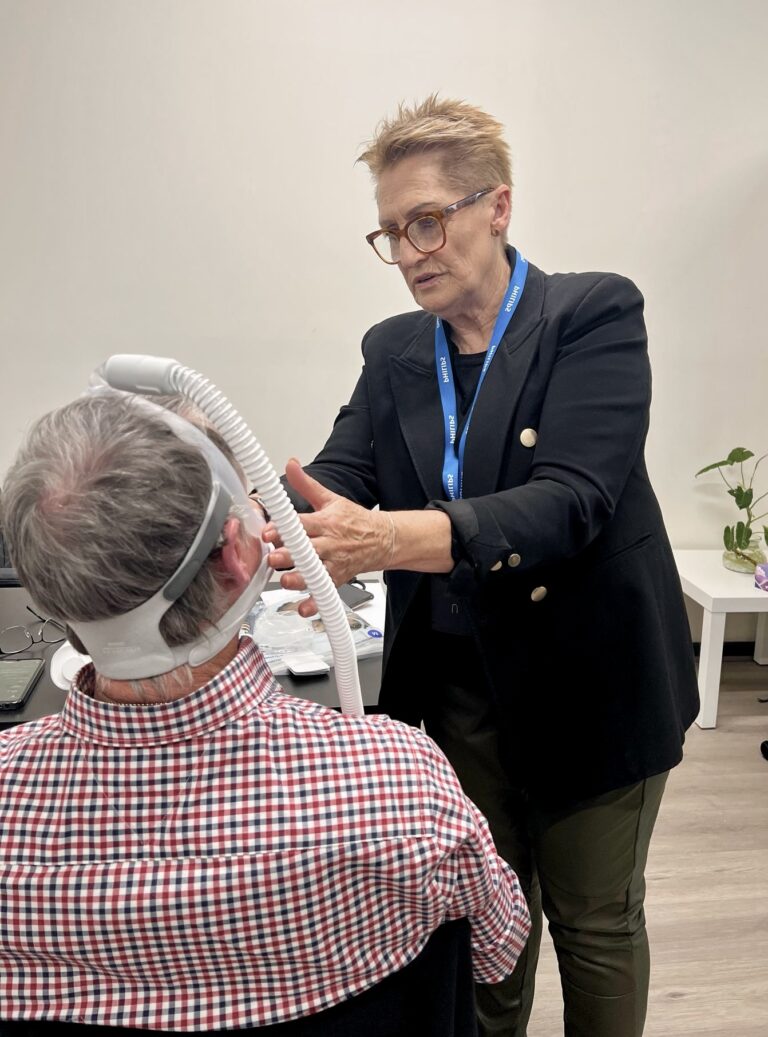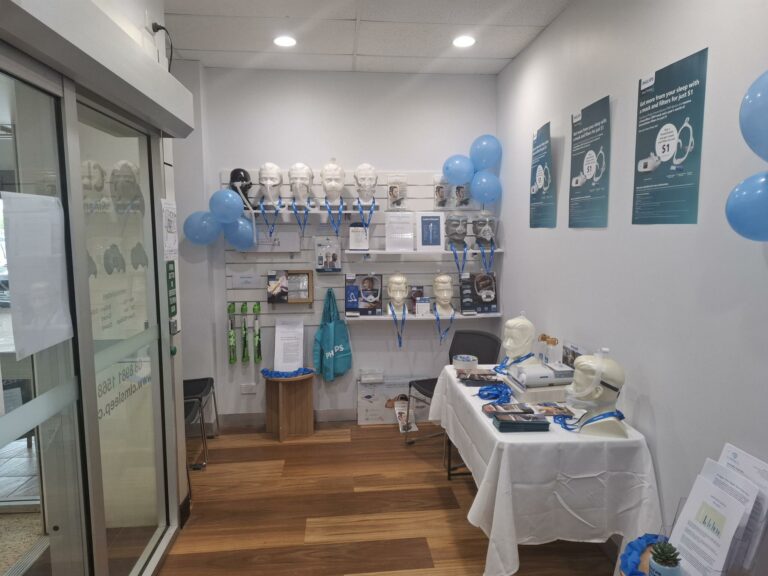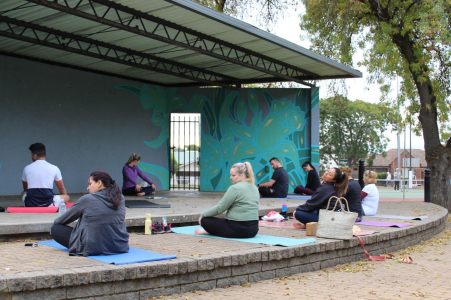Getting a good night’s sleep is vital for your overall health, but not all sleep is equal. There are different sleep stages, with deep sleep being very important for physical restoration, memory consolidation, emotional balance, and immune function. Learning how to get more deep sleep each night can increase your wellbeing, energy level, and overall quality of life. In this article, CLM Sleep will discuss the meaning of deep sleep, its importance, common reasons for poor deep sleep, and practical ways to improve deep sleep naturally. Read on to discover ways to gain deeper sleep and awaken feeling truly refreshed.
What is Deep Sleep?
Deep sleep or slow-wave sleep (SWS) is the deepest and most restorative period in the sleep cycle, during which the body experiences slowest brain waves, lowered heart rate, and muscle relaxation for physical and mental recovery.
How much deep sleep is normal? A complete sleep cycle lasts for about 90 to 110 minutes and includes some time of light sleep, deep sleep, and REM sleep. Deep sleep occurs predominantly in the early half of the night, especially during the first 2 to 3 sleep cycles.
On average, deep sleep constitutes about 13-23 percent of total sleep time in adults or about one to two hours; this time varies across age, lifestyle, and health.

Benefits of Deep Sleep
Deep sleep is often called the “body’s repair mode” because it triggers several vital processes:
- Physical Restoration: During this stage, tissue growth and repair, muscle recovery, and immune systems regain their strength.
- Memory Improvement: It is believed that the NREM stages, especially deep sleep, promote learning and contribute to memory formation. However, the precise ways it influences memory are still being studied.
- Emotional Balance: This phase supports emotional well-being, as its deficiency may lead to depression by affecting certain brain chemicals.
- Immune Support: It boosts the immune system by facilitating hormonal changes necessary for the body to fight off infections and harmful organisms
Common Causes of Poor Deep Sleep
Despite being important, many people find it difficult to induce deep sleep. Different causes disrupt this stage, including:
- Stress and Anxiety: Minds running a race can disrupt sleep by causing frequent awakenings.
- Irregular Sleep Schedule: Irregular bedtime messes up the body’s circadian rhythm.
- Caffeine and Stimulants: Having caffeine or nicotine too close to bedtime prevents an individual from entering this restorative phase.
- Poor Sleep Environment: Light, noise, and an uncomfortable temperature decrease sleep quality.
- Lack of Physical Activity: No physical activity means less time spent in the deeper stages of rest.
- Medical Conditions: Sleep apnea, restless legs syndrome, and other disorders affect deep sleep.
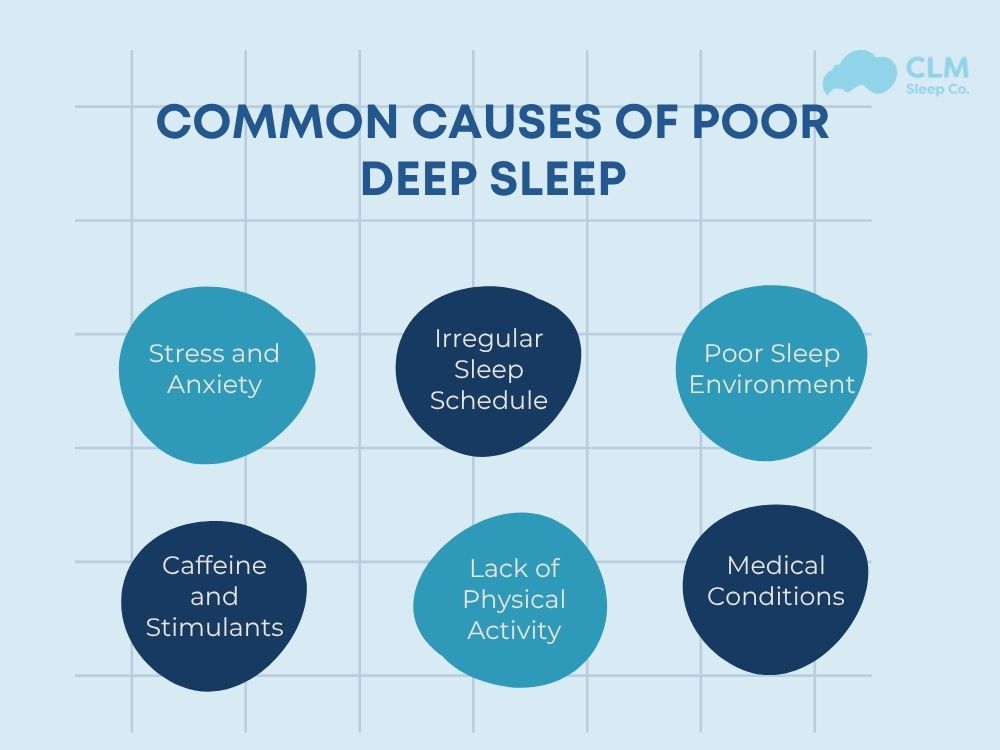
How to Get More Deep Sleep
How to improve deep sleep? Deep sleep usually occurs in the early stages of the sleep cycle,so it is important to pay attention to your activities before going to bed. To enhance it, you need to establish a relaxing bedtime routine, which could include meditation, reading, or listening to soothing music. Avoid using caffeine, stimulants, or overeating in the evening. Limit the use of electronic devices, especially exposure to blue light. Here are some practical tips based on certain evidence that will help you increase the amount and quality of this crucial sleep stage every night.
Exercise Regularly (But Not Too Late)
Getting some work-out session is one of the great natural methods to increase deep sleep. Exercise deepens the need for restorative sleep by inducing slow-wave activity in the body. At least 30 minutes of moderate exercise on most days should be administered, keeping away from heavy exercises about 2 to 3 hours before bedtime as they can be too stimulating.
Stick to a Consistent Sleep Schedule
Routines keep your body well in shape. A regular bedtime and wake time, even on weekends, set your inner clock to encourage deep sleep. Being consistent will make falling asleep or staying asleep easier.
Get 7–9 Hours of Sleep
On average, adults need at least 7-9 hours of good sleep per night. Lesser total hours of sleep will meddle with the quantity of deep sleep you get and hence thicken the sleep debt, impacting adversely on your health.
Create a Relaxing Bedtime Routine
A relaxing activity before hitting the sack takes away the troubles of deep sleep. You can meditate, read a book, or listen to calm music. These activities will give way to the molds in your mind and body that summon rest.
Limit Blue Light and Electronics
Exposure to blue light from phones, tablets, and computers suppresses melatonin production, a hormone that regulates sleep. Avoid screens for at least one hour before bed or use blue light filters if necessary.
Avoid Caffeine and Heavy Meals at Night
Caffeine can stay in your system for several hours and interfere with sleep quality. Similarly, eating large or spicy meals before bedtime can cause discomfort and disrupt deep sleep. Opt for light, easily digestible snacks if you’re hungry late.
Avoid Stress Before Bedtime
Stress and anxiety can make it hard to fall asleep. Studies show that people experiencing high stress levels not only struggle to sleep but also get less deep, restorative sleep. Engaging in calming activities that reduce stress may help improve the quality of deep sleep.
Practicing relaxation techniques such as deep breathing, yoga, and meditation can naturally ease anxiety and promote better sleep. Taking a warm bath, reading, or listening to soft music before bedtime can also help relax the mind and body, making it easier to fall into deep sleep. Additionally, it’s important to avoid talking about or focusing on stressful topics before going to bed.
If stress and anxiety persist despite self-care efforts or significantly disrupt daily life, it’s advisable to consult a healthcare professional for further support.
Keep Your Bedroom Cool and Dark
A cool (around 65°F or 18°C), dark, and quiet environment is optimal for deep sleep. Use blackout curtains, white noise machines, or fans if needed to create ideal sleeping conditions.
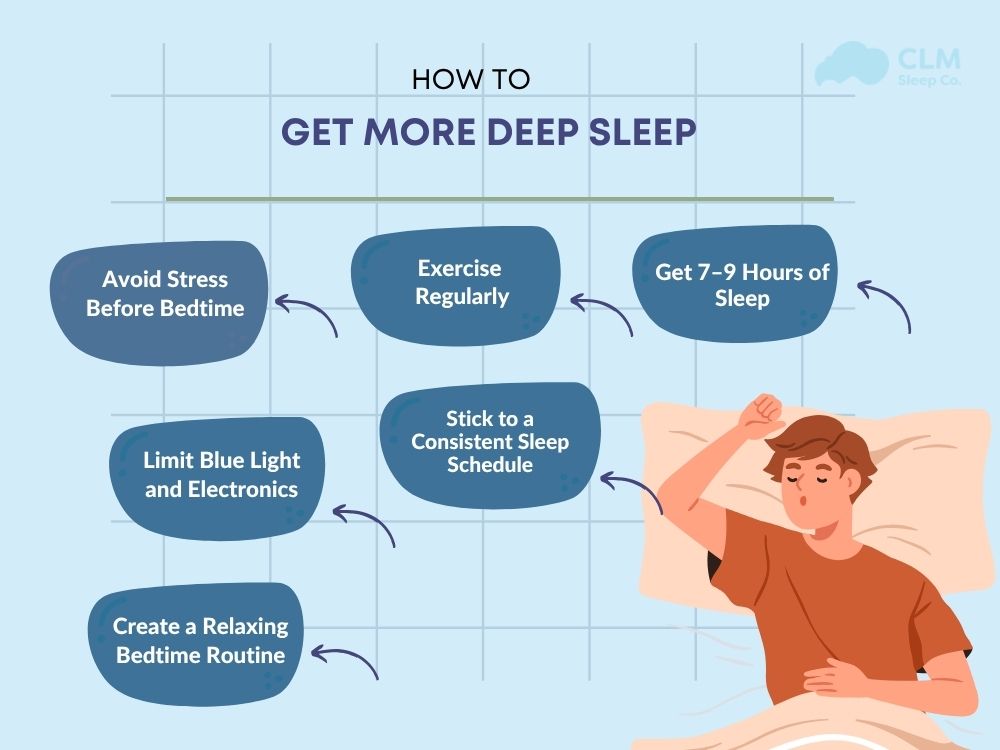
See more: How to Get More REM Sleep Naturally
When to See a Sleep Therapist
If you consistently struggle to get enough deep sleep despite healthy habits, it might be time to consult a sleep specialist. Conditions like sleep apnea or insomnia require professional diagnosis and treatment.
At CLM Sleep, we offer comprehensive sleep testing and personalized treatment plans to help you restore healthy sleep patterns. Our expert team can provide guidance on managing sleep disorders, improving sleep hygiene, and enhancing deep sleep for better overall health.

Conclusion
Deep sleep is fundamental to your physical, mental, and emotional wellbeing. Understanding how to get more deep sleep per night and implementing simple lifestyle changes can dramatically improve your sleep quality and daytime energy. Prioritize regular exercise, consistent sleep schedules, and a relaxing bedtime routine while minimizing caffeine and screen exposure to unlock the full benefits of restorative sleep.
If you want to take your sleep health seriously and need professional support, contact CLM Sleep for expert advice, testing, and treatment. Sleep better, live better!
See more: The Role of Diet in Sleep Quality

